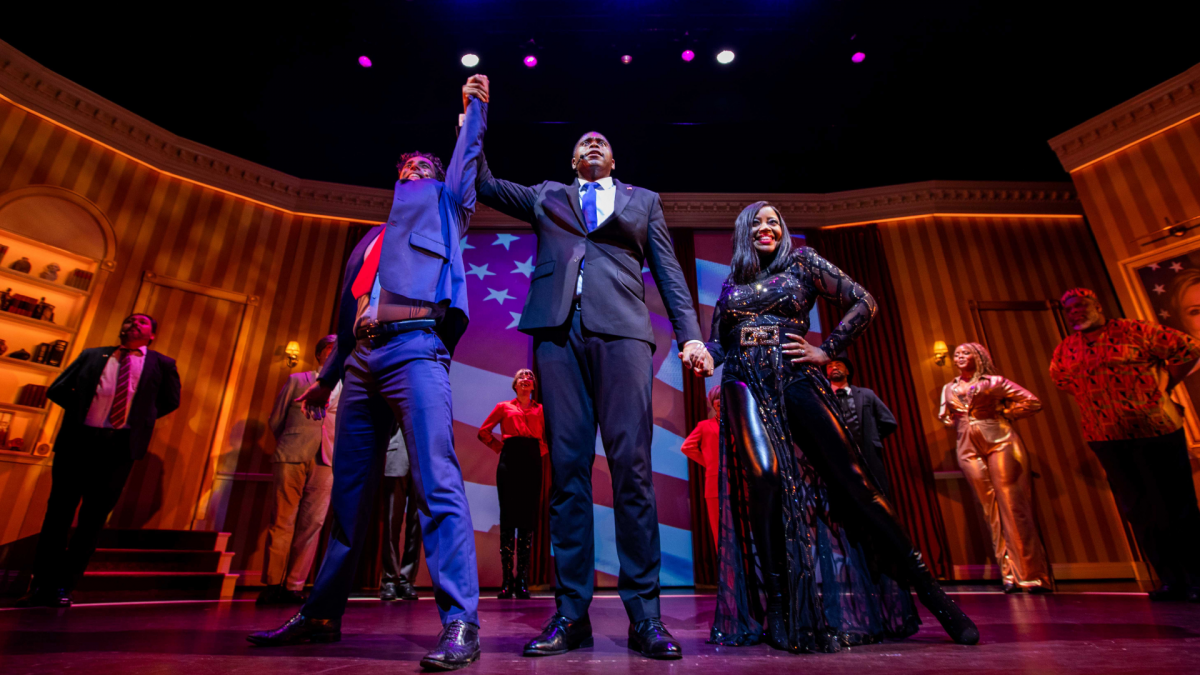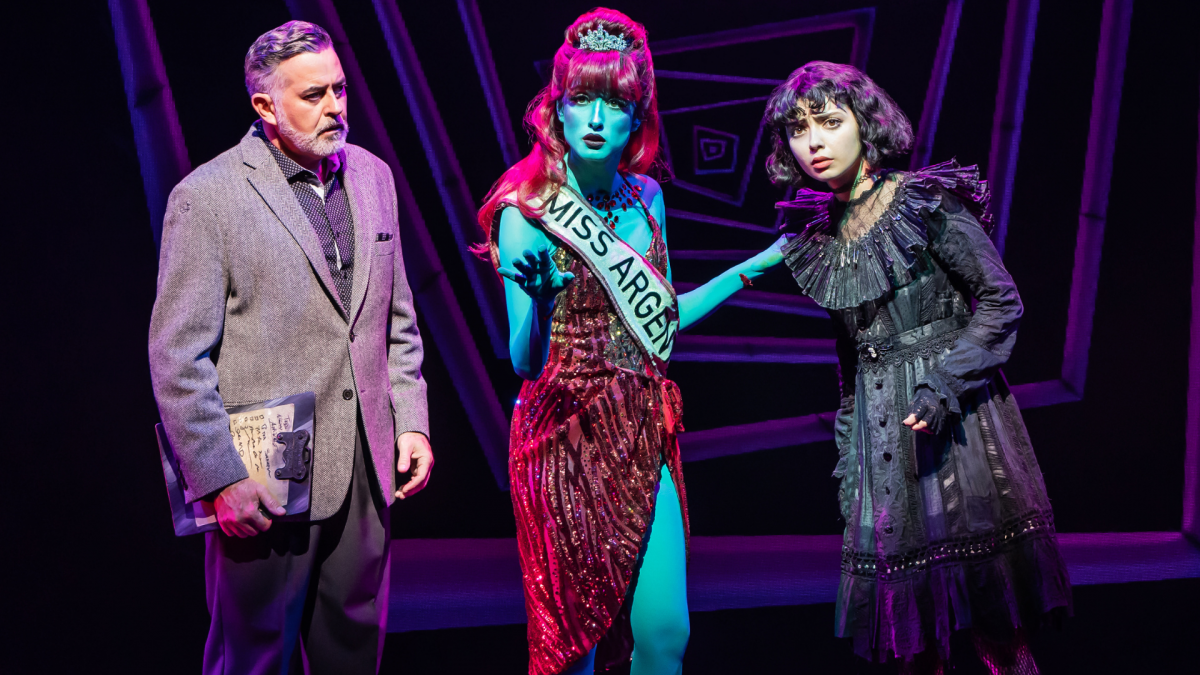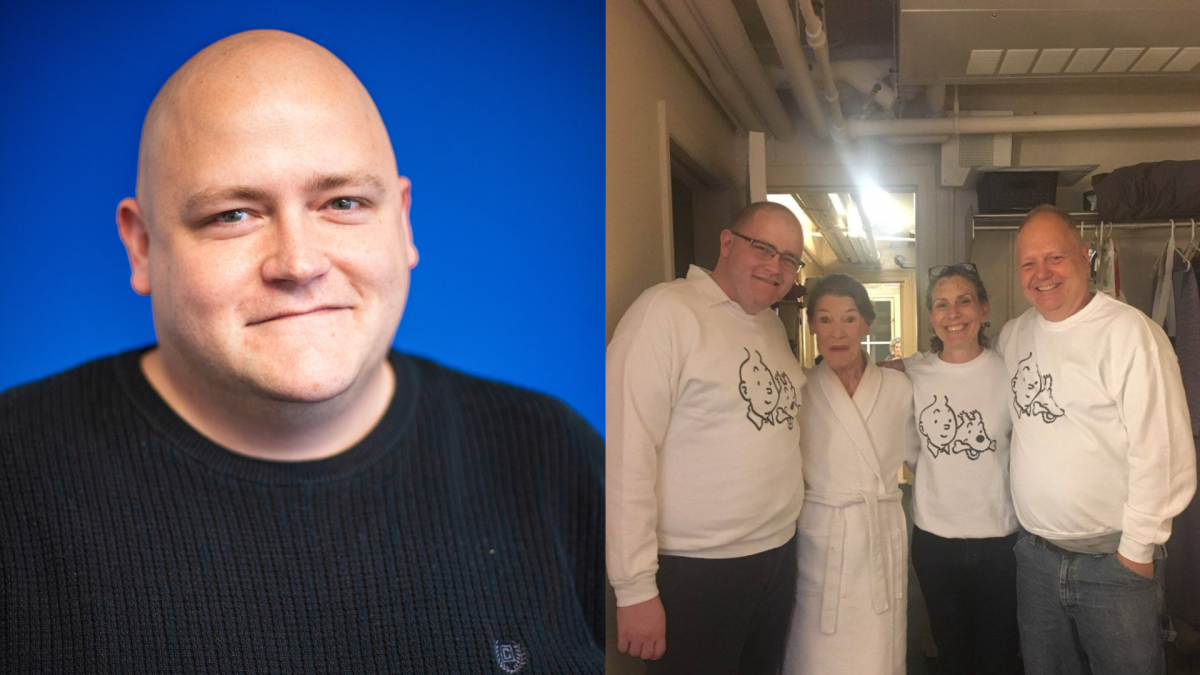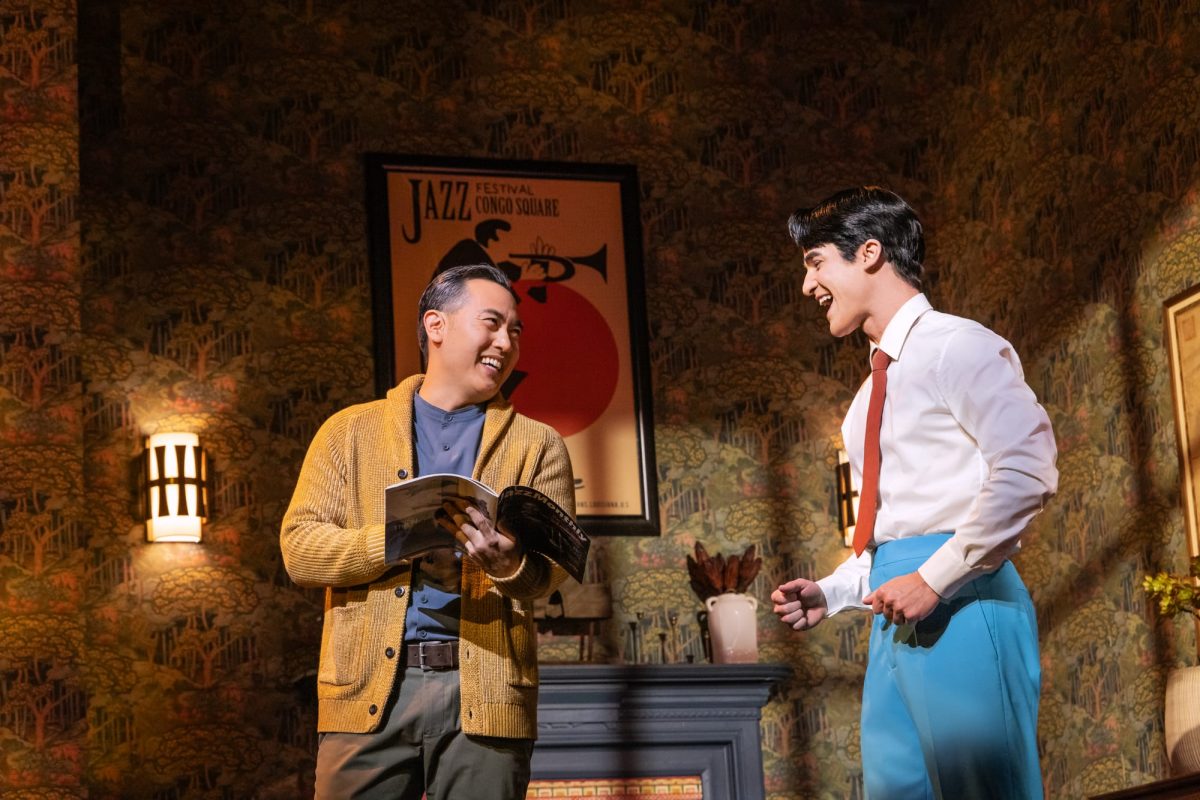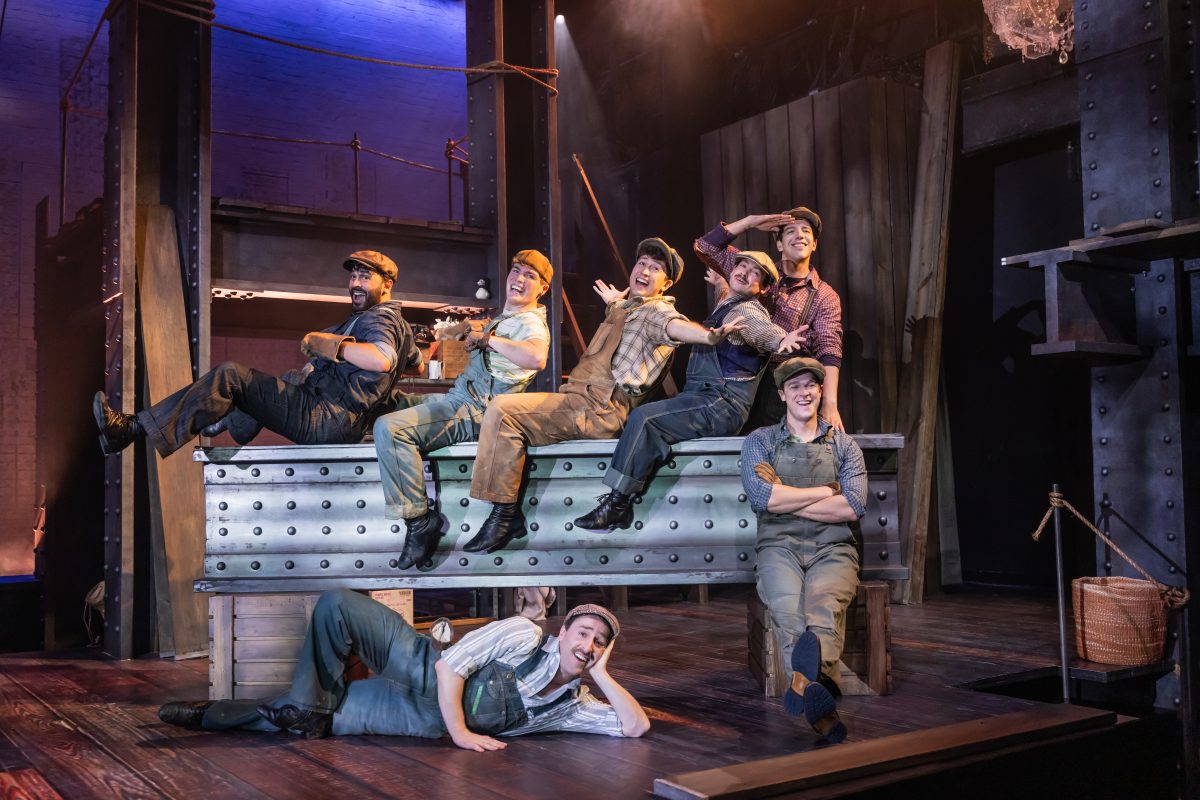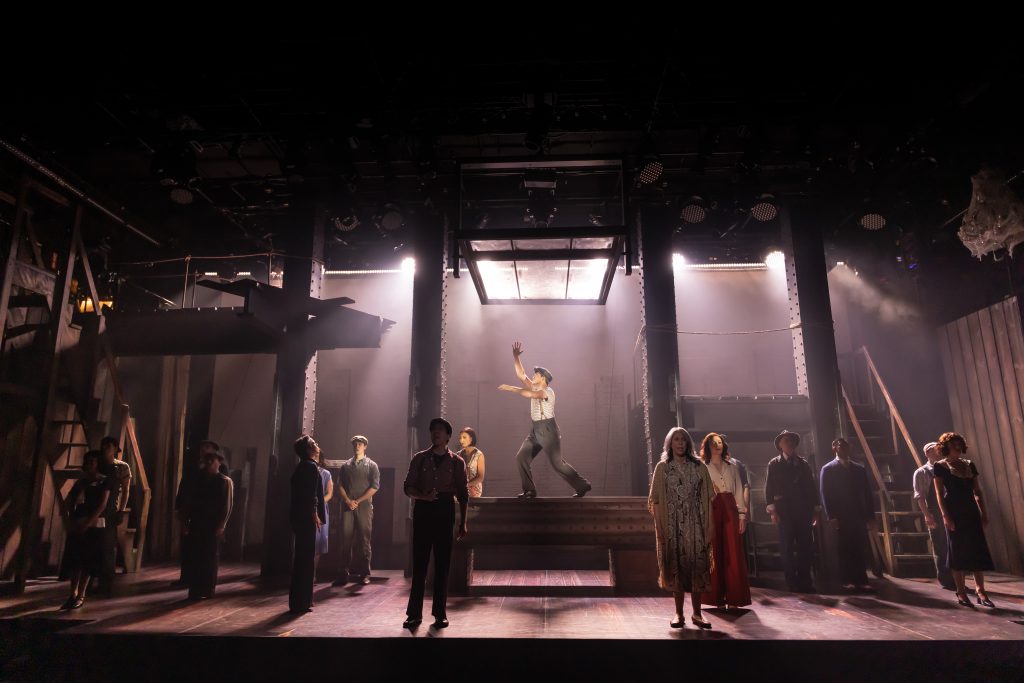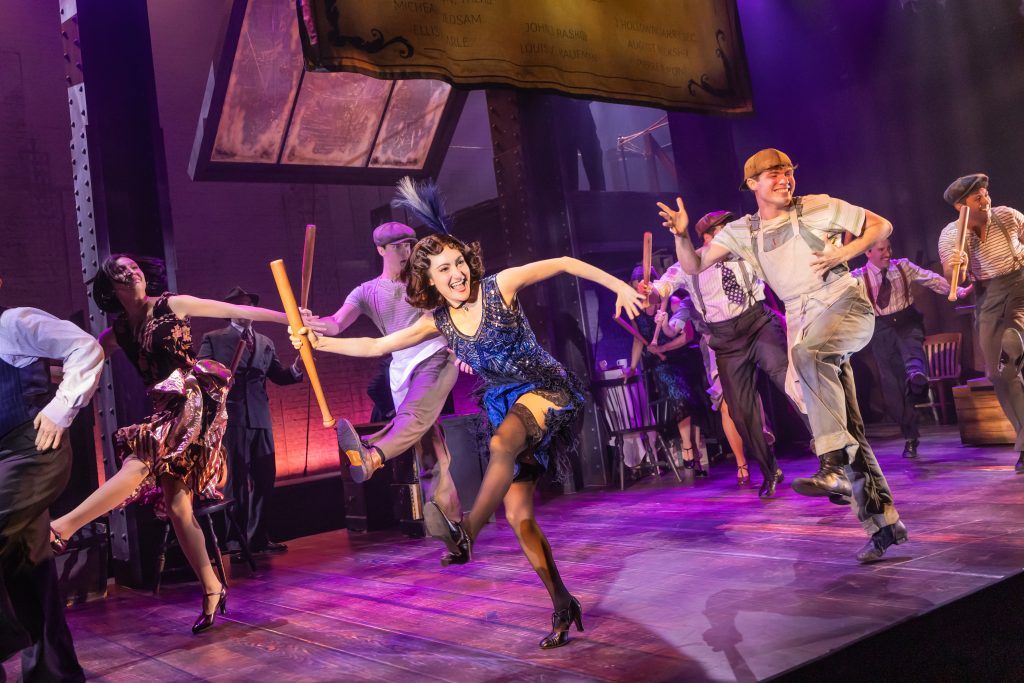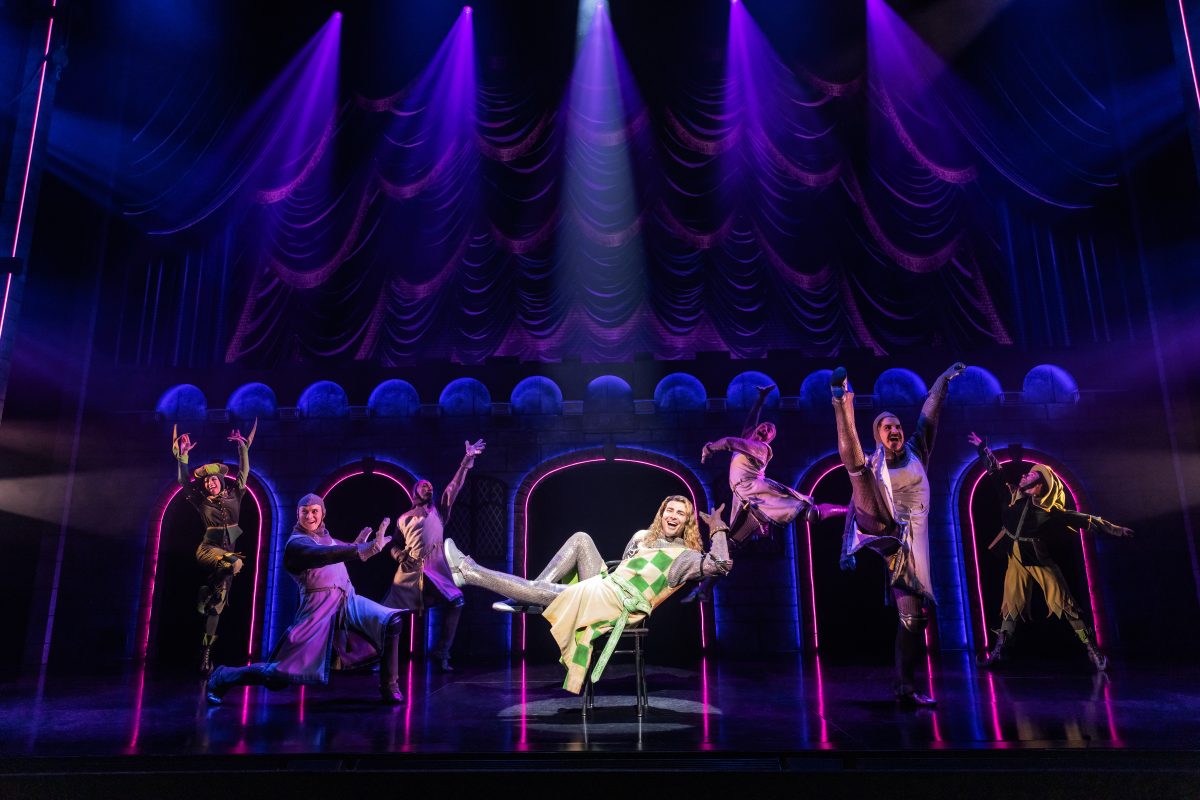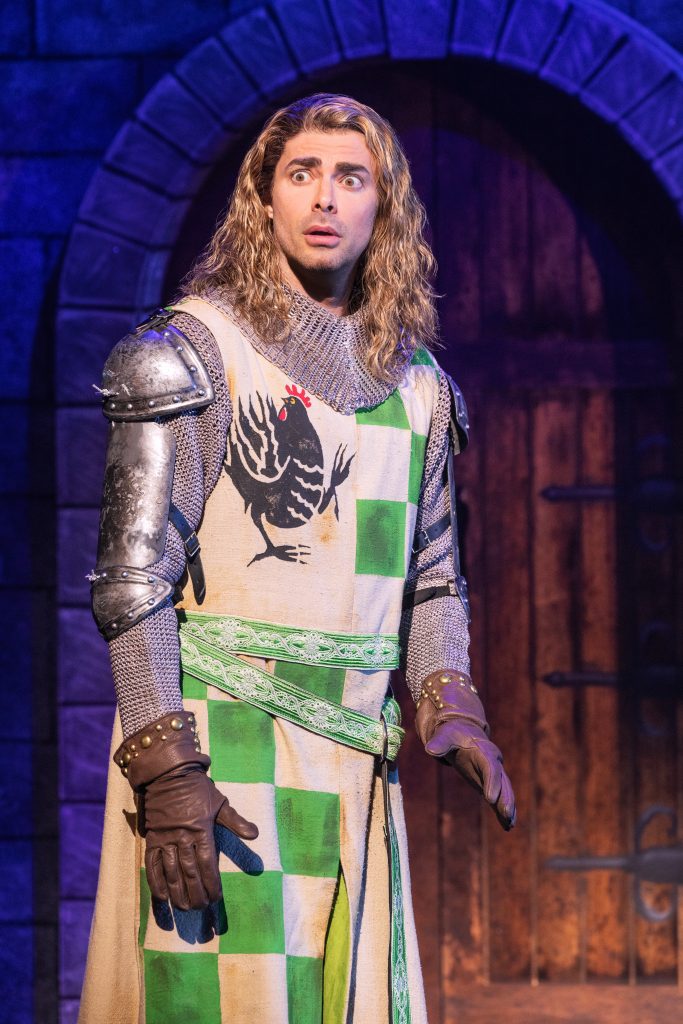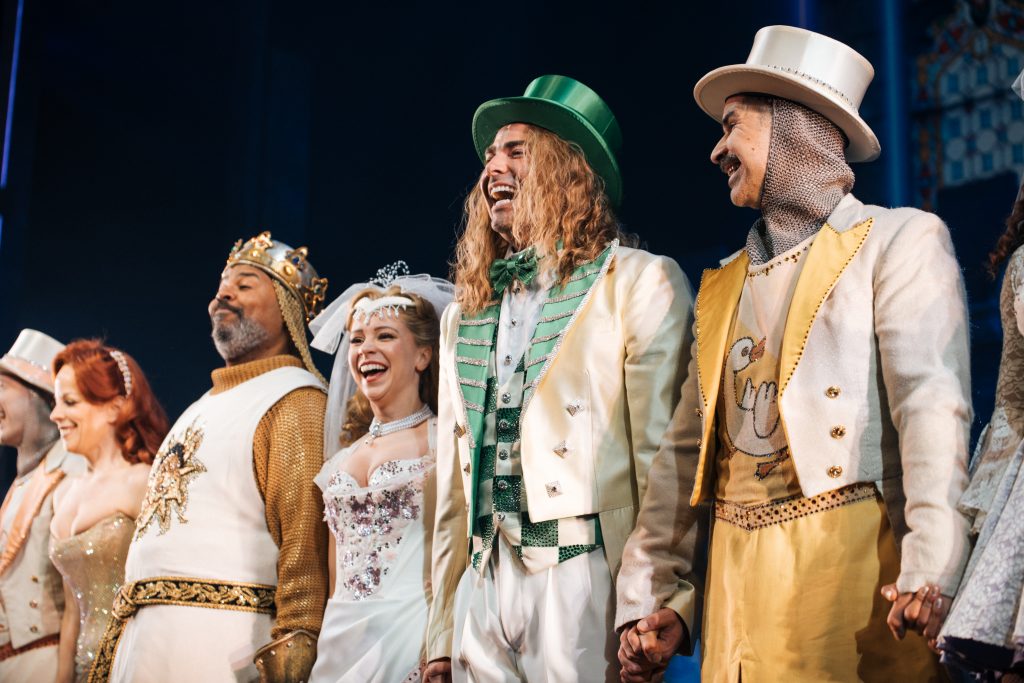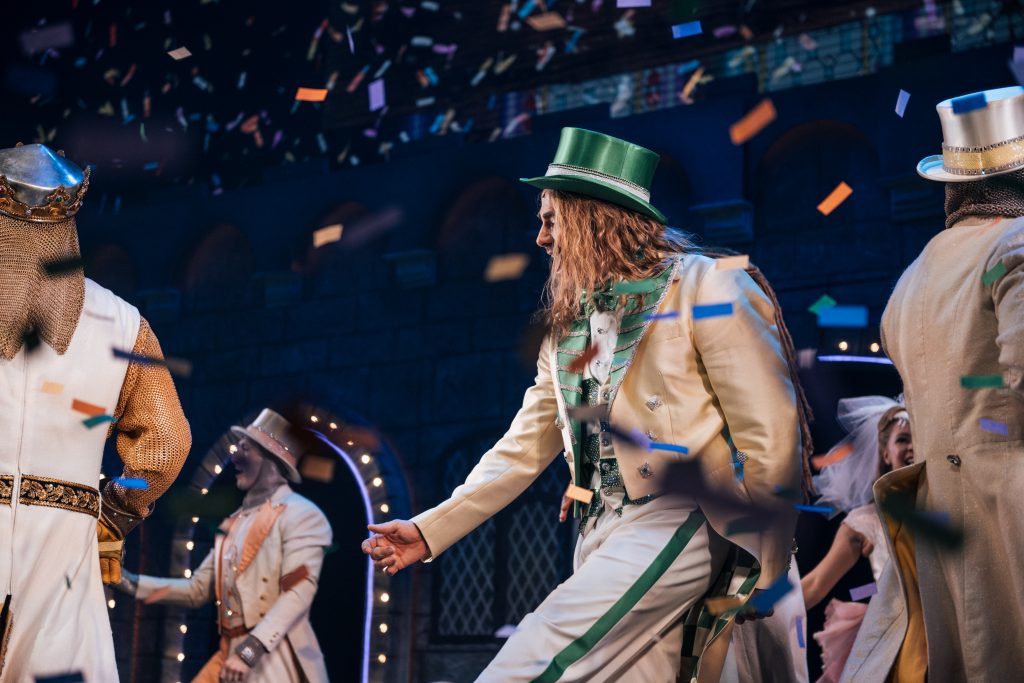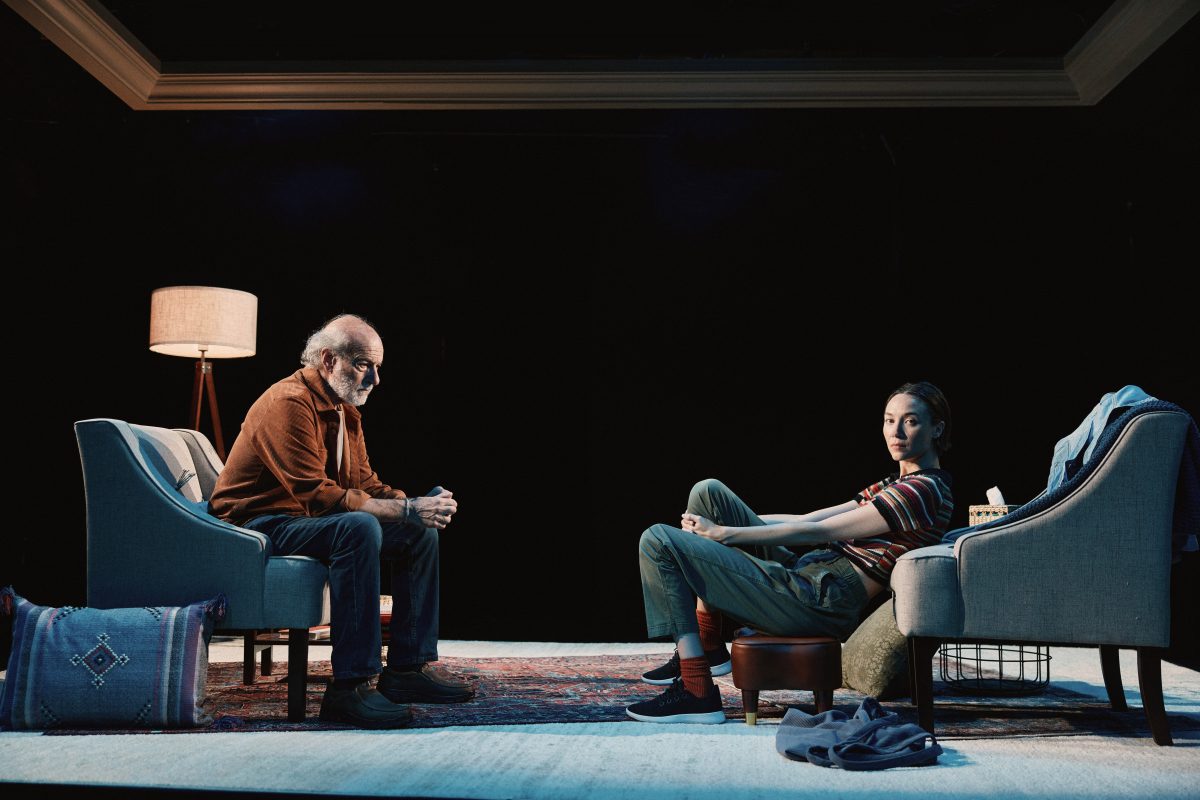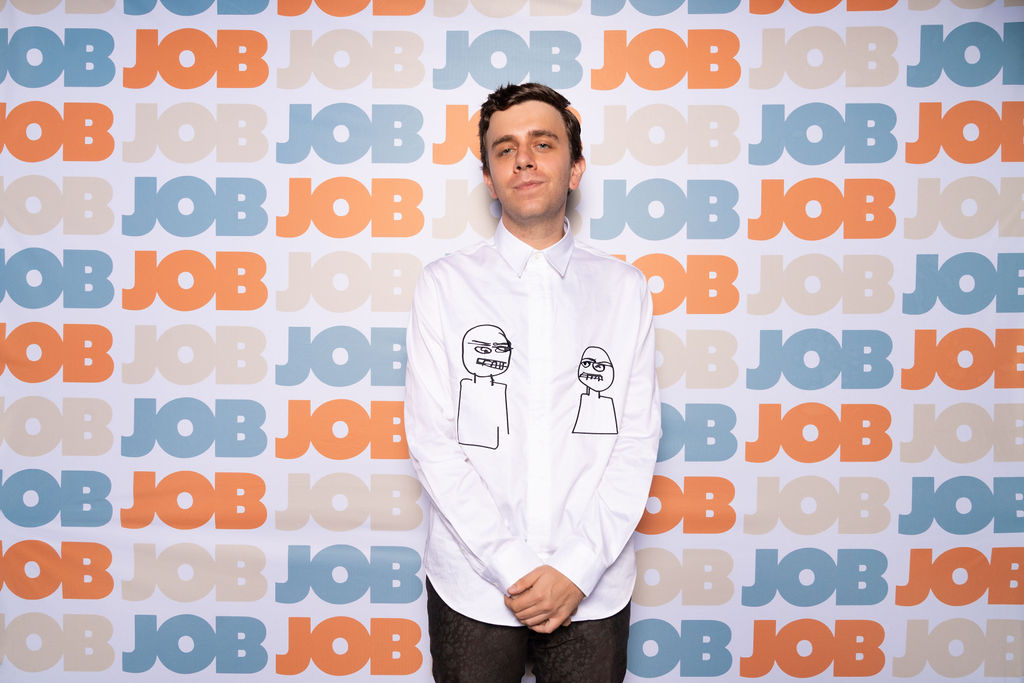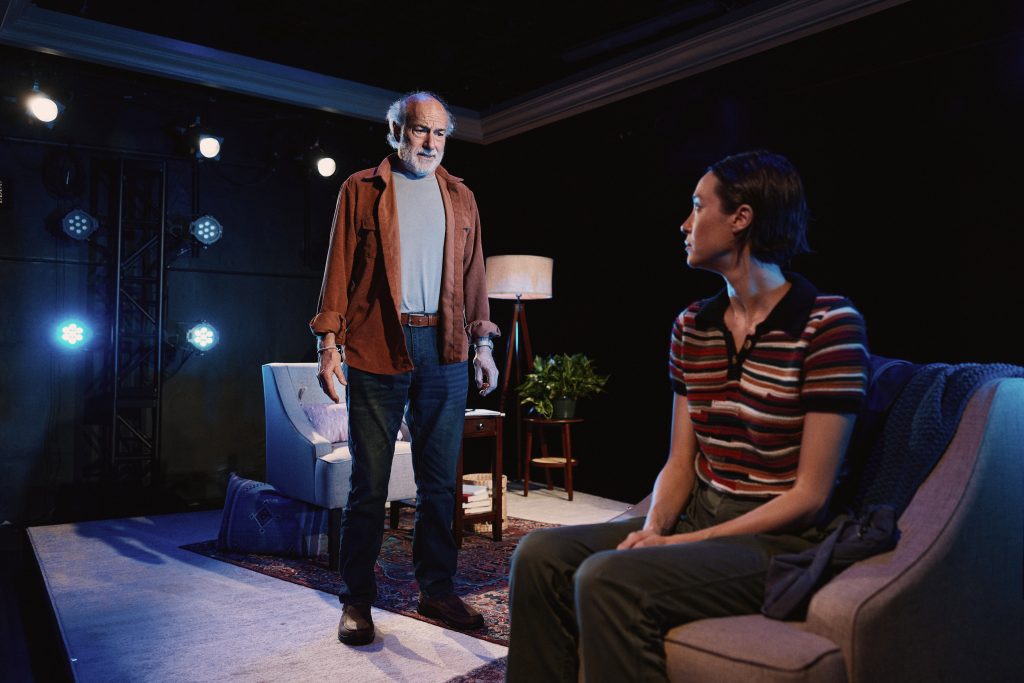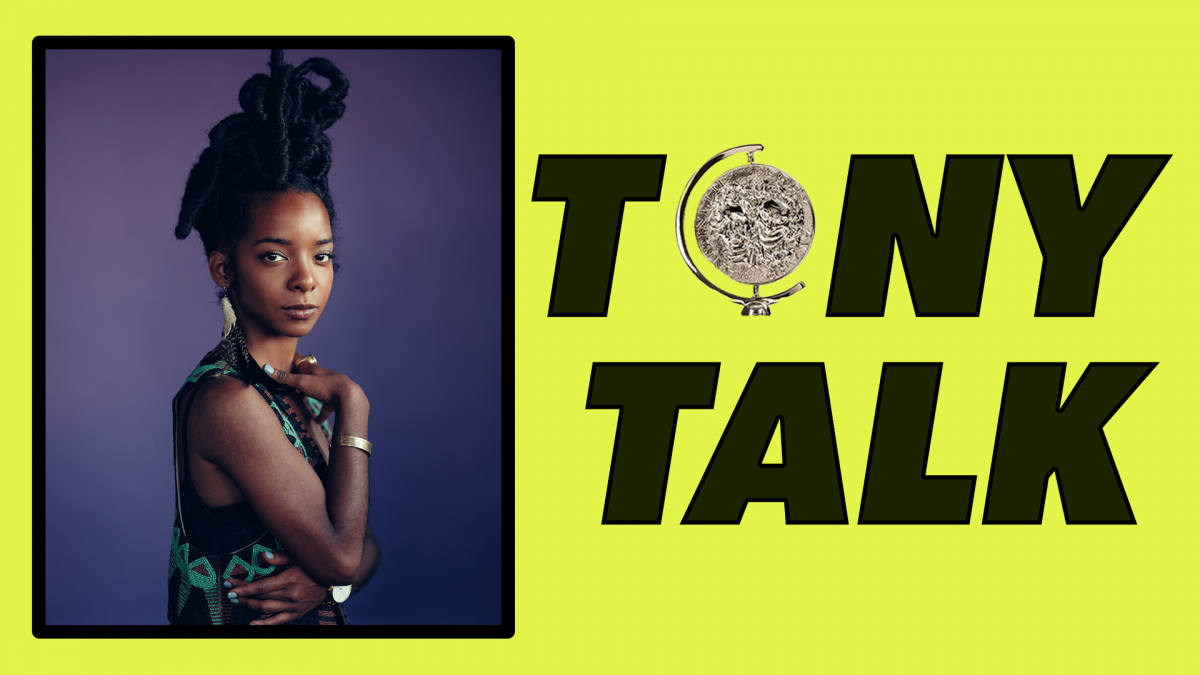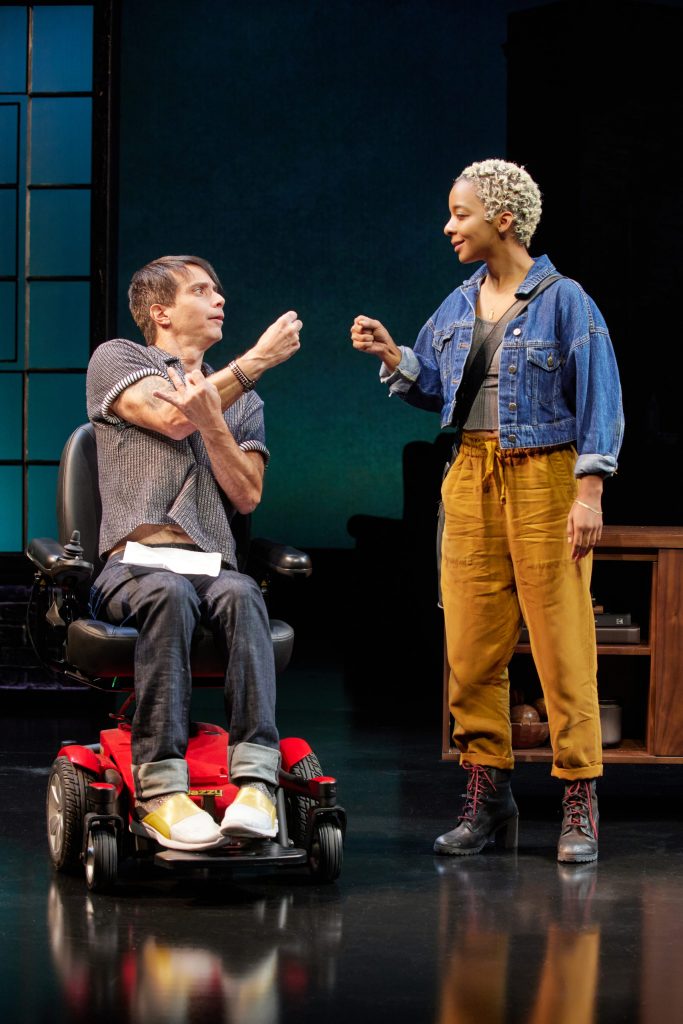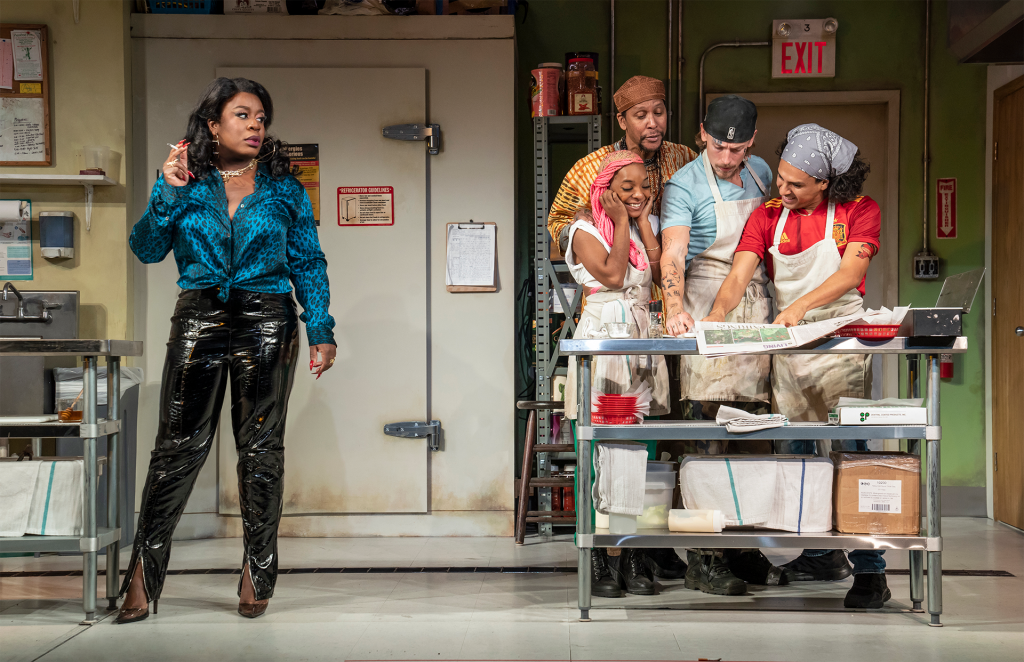By Jim Glaub
When quadruple threat (writer, composer, director, and producer) Eli Bauman began sketching out what would become 44: The Musical, he wasn’t in a writers’ room or a rehearsal hall; he was sitting alone in a Ramada Inn near the Charlotte airport.
What started as a moment of disbelief in 2016 has grown into one of Off-Broadway’s most surprising hits: a satirical pop-R&B musical about the Obama years, written, composed, directed, and produced by a man who freely admits he “had no idea what he was doing.”
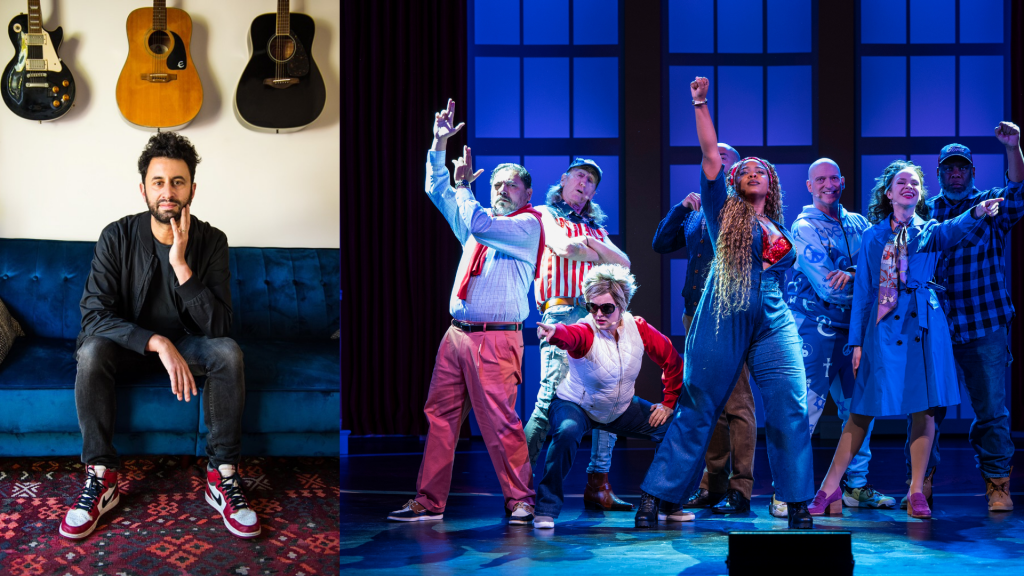
Finding the spark
Jim Glaub: Was there a moment where you thought, I’ve got to make a musical?
Eli Bauman: Yeah, I can fairly pinpoint it. It was 2016. I want to say November 5th, right on Election Day of 2016. I worked on the Obama campaign in 2008. I spent a fairly frustrating two weeks working on the Hillary campaign [in 2012], which is about as much as I could do at that time. So the results came in. I was alone in a hotel room by the Charlotte airport and I thought back. I was like, “Wow, only eight years ago I was on the strip of Las Vegas celebrating. How did we get here?”
I just started laughing to myself as I do in moments of pain. And I just thought, you know, this is so absurd. And I had been thinking about taking a stab at writing a musical. I had no experience at all. But I was coming off of working on a show called Maya and Marty, and I ended up writing most of the music that appeared on that show basically out of sheer terror. I somewhat lied—well, it’s hard to say—I kind of lied to get that job. They were looking for a comedy writer who wrote music and they were like, “You can do that, right?” And I was like, “Sure, give me a weekend to just clean something up and send it to you.” There was nothing to clean up because there was nothing. So, in a panic, I went home over the weekend and plunked out something on the piano to write for Maya Rudolph because she did a Michelle Obama impression.
That song is actually in the show. I’m incredibly productive under immense amounts of pressure and entirely unproductive with anything short of an immense amount of pressure. I wrote the majority of the show during the pandemic because I couldn’t work. My wife and I had a three-year-old and then she was pregnant. So, my wife kept working and I took care of the kids and wrote this musical.
“The beauty of not knowing what you’re doing.”
JG: It’s such a dual thing—the politics and the theatre, both having the fake it till you make it energy. You said, “Well, yeah, I can do it,” and then you actually did it.
EB: I did. And it’s the beauty of not knowing what you’re doing—you also don’t know what you’re not supposed to do.
JG: Because you were fresh to the world of theatre, it freed you from the tropes?
EB: It helped creatively, too, because I couldn’t—and still can’t—write anything that’s particularly recognizable as musical theatre from a trophy standpoint. It’s just not in my wheelhouse. The whole show is just pop songs, R&B songs—they’re all very radio friendly. That turns out to be the thing I can do: write hooks. So I feel like this show works for people who have seen Wicked 25 times and also people who had never heard of Wicked until the movie came out.
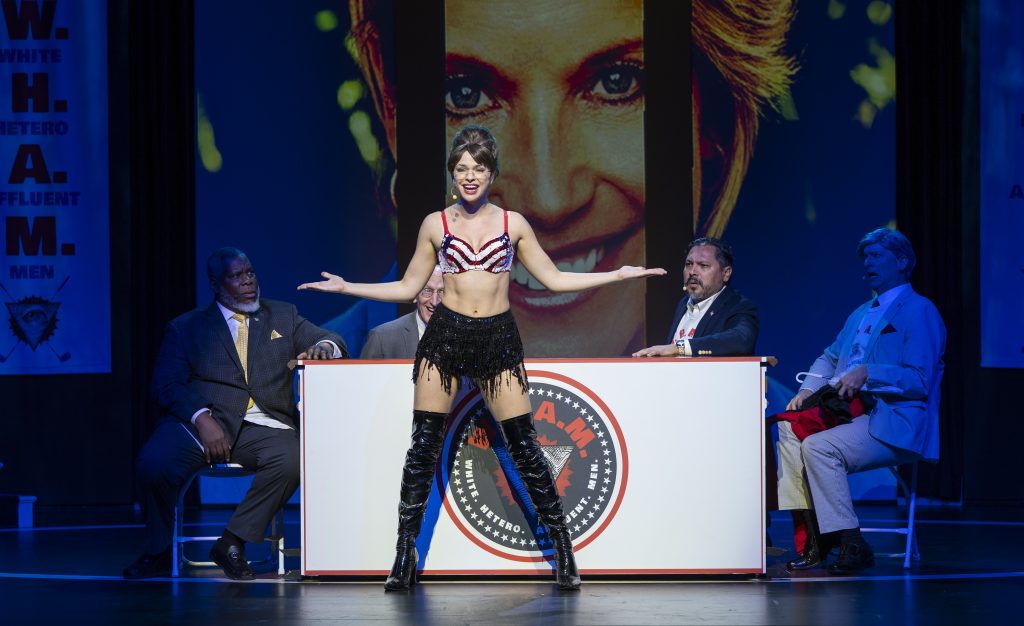
Building the sound of satire
JG: You wouldn’t have called yourself a composer before this. How did you land on what kind of music it should be?
EB: There’s a song that I’m very proud of in the show called How Black Is Too Black… and obviously I am not Black—spoiler alert—so I suppose it is risky for me to take this on. But I thought, what is a style of music that rides the edge of something that is a traditionally Black musical form, but white people are able to digest it? And I thought, okay, Motown is kind of that sound. How Black Is Too Black is a very kind of Motown-feeling, evergreen type of sound.
In the show, Sarah Palin has a big opening number. I conceived of her as this big rock figure—knee-high leather boots, verging on dominatrix. I had this one kind of cool guitar line in my head that feels almost like Black Sabbath. That song, which is called Drill Me, is completely that style. To me it’s all about the hook. Once I have the hook, the rest falls into place.
Most of the songs have a pop-song structure, so the lyrics are the easy part for me. Once I have the hook, then I know what I’m building towards. The way I write comedy, the way our scenes are written, are very percussive and melodic and have their own flow to them.
I say to the guy who plays Mitch McConnell in our show—he’s hilarious—I have the most fun writing that character because in real life Mitch McConnell says everything in a drawl, so our Mitch McConnell says everything in a drawl. Larry Cedar, who’s played the role since the first reading, is a drummer, and so I write that character very percussively. All of the dialogue in that is musical. If I put a score to it, it would work.
Our music director Anthony Brewster, “Brew,” would get my demos and we’d flesh them out together. He’d say, “Oh, okay, I guess we learned gospel passing chords this weekend,” and I’d say, “That’s right, Brew.” Learning on the job is the best way to do it. Pressure is good—and fear of humiliation is a good motivation for me.
Campaigns, creativity, and connection
JG: It’s so rare that we in theatre get to engage with someone who’s actually worked in politics. Are there overlaps between that world and this one?
EB: It is very true. There’s a lot of overlap in skill set. Managerially you’re running a structure—similar to how campaigns operate. From a directing standpoint, our audience is very engaged in the show and we love that, and I pay a lot of attention to what strikes a chord with people. It’s very similar to campaign messaging. Ultimately, you throw a bunch of stuff at the wall, and you’re listening to feedback. I don’t listen to that much feedback from experts. I listen to feedback from the audience.
At the first show, I came out and addressed the audience and said, “Look, I don’t know what’s going to happen here at all. This could be a big mess. What I can promise you is that all of the noise out there… we’re going to leave that out there for the next couple hours. I want to invite everyone into a spirit of joy in this room. This is not going to be a typical musical theatre thing where everyone has to sit quietly. I want people to have fun.”
What I’ve stumbled upon is that our audience comes out feeling joyful and hopeful. It’s come all the way around and reflects what 2008 felt like. There’s something tragic in it too, but something beautiful about feeling like at one point we all felt hopeful and joyful, and we’ll get there again.
Nostalgia and now
JG: You’ve called it nostalgic, even though that era wasn’t that long ago.
EB: I think we’re nostalgic for a feeling, and our audience responds to that. These are all characters that exist in real time. The show lives both in the past and the present because all of these people are still doing stuff—good, bad, and in between. I didn’t set out to write a nostalgia piece, it’s just how our audience has taken it.
It started in that hotel room in 2016. I love studying history, it’s fascinating to me how nonlinear it is. There’s something instructive but also beautiful about being able to look back and feel both puzzled and wise. I try not to live in the past, but I do try to learn from it. This is somewhat my way of trying to make sense of how history has moved—and moved so quickly—over the last dozen years.

Breaking into Broadway’s “machine”
JG: Has it been eye-opening navigating Broadway and its red tape?
EB: Yes. Like any industry that you don’t belong to or have experience in, you’re like, “Wait, what’s that?” I’ve had some frustrations with how risk averse I sometimes find theatre. I’m somewhat of a renegade by nature and I don’t really like conventional wisdom. Sometimes it’s just how much machine you have to get through (and honestly how expensive that machine is) where I’m just like, come on guys, we’re trying real hard here to just put something up on its feet.
It’s Monica and I who make all of the decisions. We have more outsiders than insiders. Now we have insiders where we need to have insiders in the management level, and outsiders where we need to have outsiders, in the big decisions and in some of the creative. I don’t ever want to lose the original spirit of the show, which is a bunch of people who didn’t know what they were doing. There’s something beautiful and unique about that. But we definitely needed professionals in the managerial departments. I’m the first one to admit that I don’t know everything.
What’s next for 44’s accidental auteur
JG: Now that you’ve had a taste of the musical theatre bug, are you going to keep going?
EB: Yeah. I’m writing something that kind of combines things—a TV project that has a ton of music in it and basically a musical within it. I think I need a break. This was such a herculean effort to get up on its feet. Every venue is different, every city is different. [44 played in Los Angeles and Chicago prior to New York.] I need a break from the grind. But creatively, it feels like it’s right in my wheelhouse.
The writing is the easy part for me. The directing I basically got into just to avoid a director coming in over top. It was a practical decision more than a passion decision. Now I love it, but to some extent I just didn’t want someone coming in and—even if my voice is not perfect—it at least comes from one place. The producing is exhausting. I love it and I hate it. Everything lands on my desk… from the construction of a staircase to someone twisting their ankle. It never ends.
Unfortunately, I think the addiction has started. I am a control freak, so I can’t promise that I’ll stop. I just need a break. I also have a seven-year-old and a four-year-old, so I’m surrounded by chaos—but that’s for my therapist to figure out.
JG: You’re really choosing chaos.
EB: Well, I have chosen that path.
44: The Musical is playing at the Daryl Roth Theatre through December 7, 2025. For tickets and more information, visit 44theobamamusical.com.
